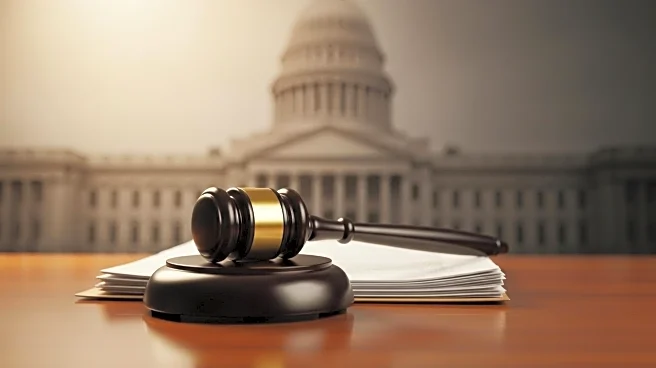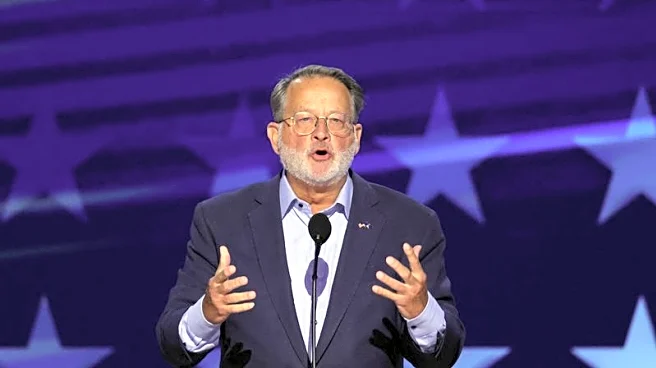What's Happening?
House Speaker Mike Johnson criticized Democrats for not supporting a stopgap funding bill that would prevent a government shutdown. Johnson, along with Vice President J.D. Vance, Senate Majority Leader John Thune, and Office of Management and Budget Director Russ Vought, addressed the issue following a meeting with President Trump and Democratic leaders. Johnson accused Senate Minority Leader Chuck Schumer and House Minority Leader Hakeem Jeffries of making policy demands that hinder the passage of the bill, which would keep the government open for seven weeks. Democrats are pushing for the inclusion of enhanced Affordable Care Act tax credits in the resolution, which are set to expire at the end of 2025. Johnson argued that these demands are irrelevant to the immediate need to pass the funding bill.
Why It's Important?
The potential government shutdown poses significant risks to various sectors, including public services and economic stability. If the government shuts down, it could disrupt federal operations and affect millions of Americans who rely on government services. The disagreement over the Affordable Care Act tax credits highlights ongoing tensions between Republicans and Democrats regarding healthcare policy. The outcome of this funding bill could influence future negotiations on healthcare reforms and impact the political landscape, especially with upcoming elections.
What's Next?
If the funding bill is not passed, the government will face a shutdown, leading to potential furloughs and service disruptions. Both parties may continue negotiations to reach a compromise, but the inclusion of healthcare provisions remains a contentious issue. Political leaders may face pressure from their constituencies to resolve the impasse, and further discussions on healthcare reforms could be scheduled.
Beyond the Headlines
The debate over the Affordable Care Act tax credits reflects broader ideological differences between the parties on healthcare access and immigration policies. The insistence on including these credits in the funding bill underscores the Democrats' commitment to maintaining healthcare affordability, while Republicans focus on a 'clean' resolution. This conflict may have long-term implications for healthcare policy and party dynamics.









